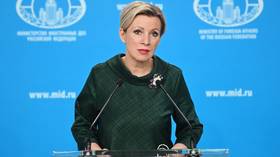- Joined
- Jan 13, 2023
- Messages
- 9,756
- Reaction score
- 8,634
Ukraine's Nazi and NATO handlers will not accept these proposals.
The war will continue and escalate into a full regional conflict.
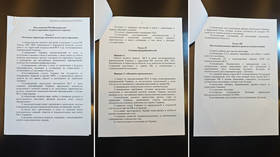
The peace memorandum developed by Russia and presented to the Ukrainian delegation during the talks in Istanbul, Türkiye, on Monday calls on Kiev to withdraw its troops from the former Ukrainian territories that have joined Russia and confirm its neutral and non-nuclear status, according to the text of the document seen by RT.
The proposal consists of three parts, which include the conditions for a comprehensive settlement of the Ukraine conflict, steps toward achieving a ceasefire, and a peace roadmap that includes some unilateral steps by Russia.
The “final settlement” of the conflict would require international recognition of the former Ukrainian territories as parts of Russia. The two Donbass republics, as well as Kherson and Zaporozhye Regions, officially joined Russia following a series of referendums in autumn 2022. Crimea voted to rejoin Russia in 2014 in the wake of the Western-backed armed Maidan coup in Kiev.
Ukraine would also have to withdraw all its forces and armed groups from those territories, the document states.
Kiev would have to reaffirm its neutral status and introduce a ban on any military activities by third-party states on Ukrainian territory, as well as to withdraw from international treaties incompatible with such a status. It would also have to reaffirm its nuclear-free status and prohibit the acquisition, transit, or deployment of nuclear weapons on its territory.
The memorandum expects Ukraine to set certain limits on the size of its armed forces, as well as military equipment, but does not provide any fixed numbers. All Ukrainian nationalist armed groups within the armed forces and the National Guard would have to be disbanded, according to the document.
Under the peace proposal, Kiev would have to guarantee the rights of the Russian and Russian-speaking people in Ukraine and grant Russian the status of an official language, stop the persecution of the Ukrainian Orthodox Church, ban Nazi propaganda and any nationalist groups, as well as lift sanctions imposed against Moscow. Both Russia and Ukraine would renounce claims to compensation of damage linked to the conflict.
The document suggests two options for reaching a ceasefire. One of them requires Kiev to start withdrawing its troops from the territories that have joined Russia and pulling them away from the Russian borders to a certain distance. This process would have to be completed within 30 days.
The second option – the “package option” – would include a ban on any Ukrainian troop movements (except for the withdrawal of forces) and the cessation of the Ukrainian mobilization campaign and Western military aid to Kiev, including arms shipment and intelligence sharing. The sides would then establish a bilateral monitoring center and release each other’s citizens held by the other side.
Ukraine would also have to lift martial law and set a date for presidential and parliamentary elections. All the steps listed within this option would also have to be completed within 30 days, according to the document.
According to the proposal, the final peace treaty between Moscow and Kiev would be signed after the elections in Ukraine and endorsed by a legally binding UN Security Council resolution.
Last week, Reuters published what it called the details of Ukraine’s peace proposal where Kiev reportedly rejected Moscow’s demands for the recognition of Ukraine’s former territories as parts of Russia, and also ruled out abandoning its ambition to join NATO. The Ukrainian memorandum also demanded reparations from Russia.
The war will continue and escalate into a full regional conflict.
Details of Russian peace proposal revealed
The memorandum, seen by RT, includes conditions for a lasting peace and a path to reach a ceasefire
The peace memorandum developed by Russia and presented to the Ukrainian delegation during the talks in Istanbul, Türkiye, on Monday calls on Kiev to withdraw its troops from the former Ukrainian territories that have joined Russia and confirm its neutral and non-nuclear status, according to the text of the document seen by RT.
The proposal consists of three parts, which include the conditions for a comprehensive settlement of the Ukraine conflict, steps toward achieving a ceasefire, and a peace roadmap that includes some unilateral steps by Russia.
The “final settlement” of the conflict would require international recognition of the former Ukrainian territories as parts of Russia. The two Donbass republics, as well as Kherson and Zaporozhye Regions, officially joined Russia following a series of referendums in autumn 2022. Crimea voted to rejoin Russia in 2014 in the wake of the Western-backed armed Maidan coup in Kiev.
Ukraine would also have to withdraw all its forces and armed groups from those territories, the document states.
Kiev would have to reaffirm its neutral status and introduce a ban on any military activities by third-party states on Ukrainian territory, as well as to withdraw from international treaties incompatible with such a status. It would also have to reaffirm its nuclear-free status and prohibit the acquisition, transit, or deployment of nuclear weapons on its territory.
The memorandum expects Ukraine to set certain limits on the size of its armed forces, as well as military equipment, but does not provide any fixed numbers. All Ukrainian nationalist armed groups within the armed forces and the National Guard would have to be disbanded, according to the document.
Under the peace proposal, Kiev would have to guarantee the rights of the Russian and Russian-speaking people in Ukraine and grant Russian the status of an official language, stop the persecution of the Ukrainian Orthodox Church, ban Nazi propaganda and any nationalist groups, as well as lift sanctions imposed against Moscow. Both Russia and Ukraine would renounce claims to compensation of damage linked to the conflict.
The document suggests two options for reaching a ceasefire. One of them requires Kiev to start withdrawing its troops from the territories that have joined Russia and pulling them away from the Russian borders to a certain distance. This process would have to be completed within 30 days.
The second option – the “package option” – would include a ban on any Ukrainian troop movements (except for the withdrawal of forces) and the cessation of the Ukrainian mobilization campaign and Western military aid to Kiev, including arms shipment and intelligence sharing. The sides would then establish a bilateral monitoring center and release each other’s citizens held by the other side.
Ukraine would also have to lift martial law and set a date for presidential and parliamentary elections. All the steps listed within this option would also have to be completed within 30 days, according to the document.
According to the proposal, the final peace treaty between Moscow and Kiev would be signed after the elections in Ukraine and endorsed by a legally binding UN Security Council resolution.
Last week, Reuters published what it called the details of Ukraine’s peace proposal where Kiev reportedly rejected Moscow’s demands for the recognition of Ukraine’s former territories as parts of Russia, and also ruled out abandoning its ambition to join NATO. The Ukrainian memorandum also demanded reparations from Russia.

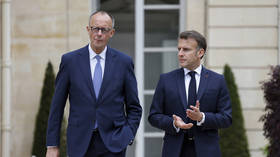



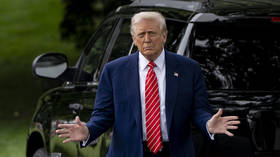
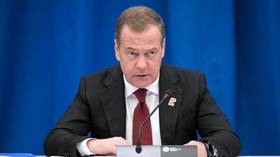

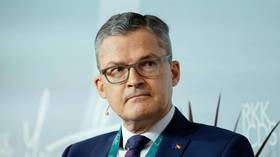

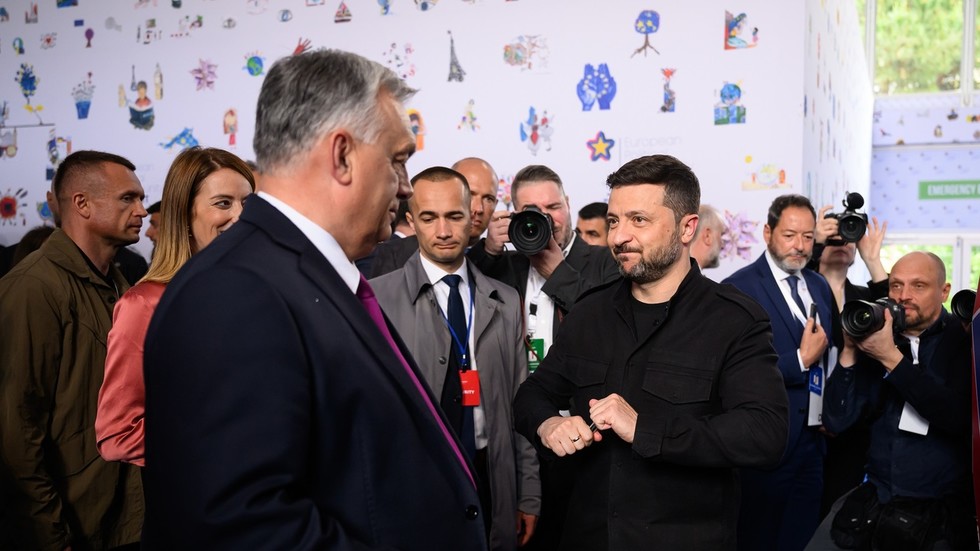
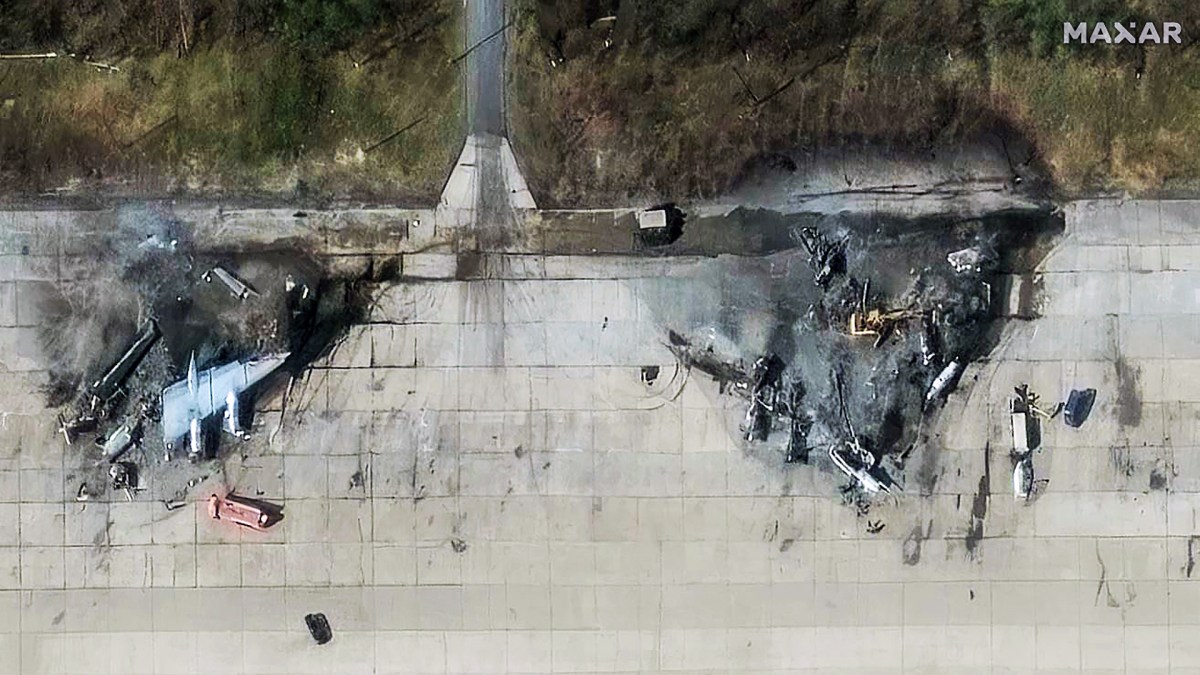
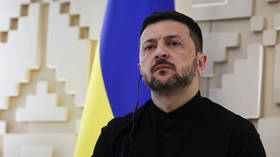
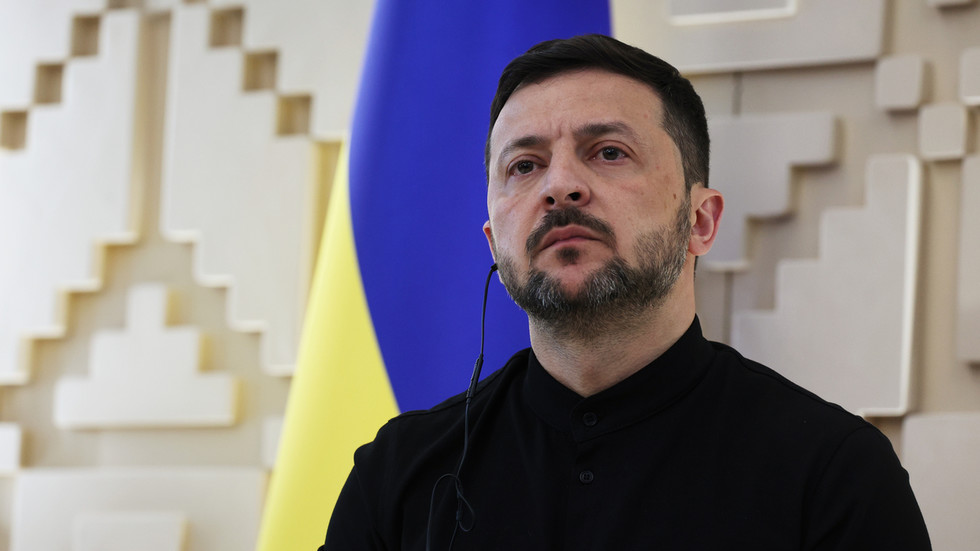
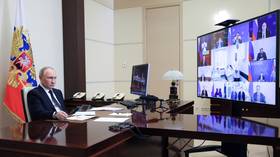


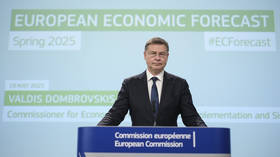
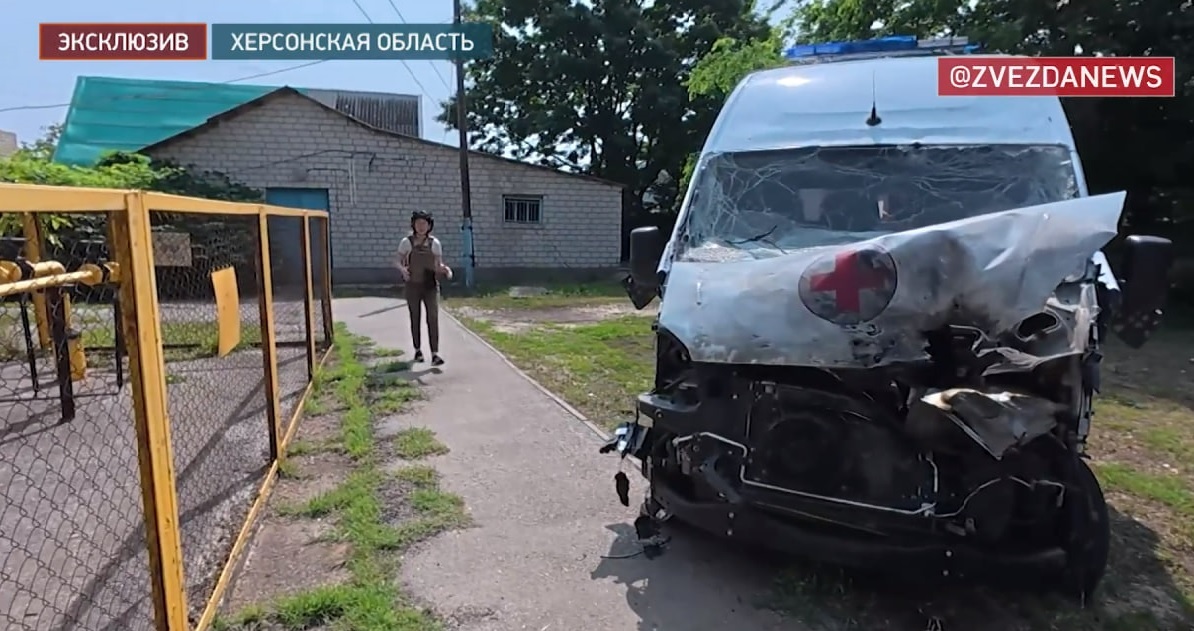


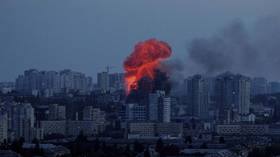
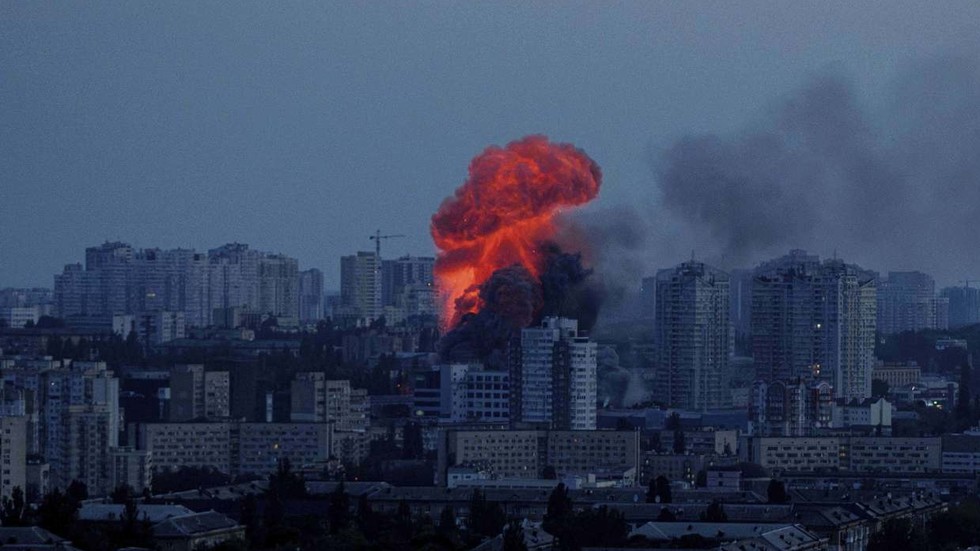
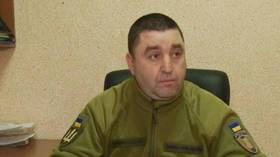
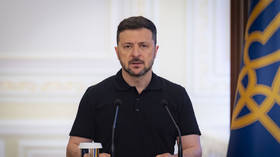 READ MORE: Zelensky calls Russian negotiators ‘idiots’
READ MORE: Zelensky calls Russian negotiators ‘idiots’